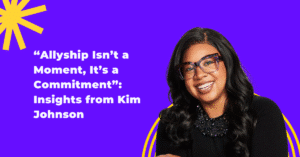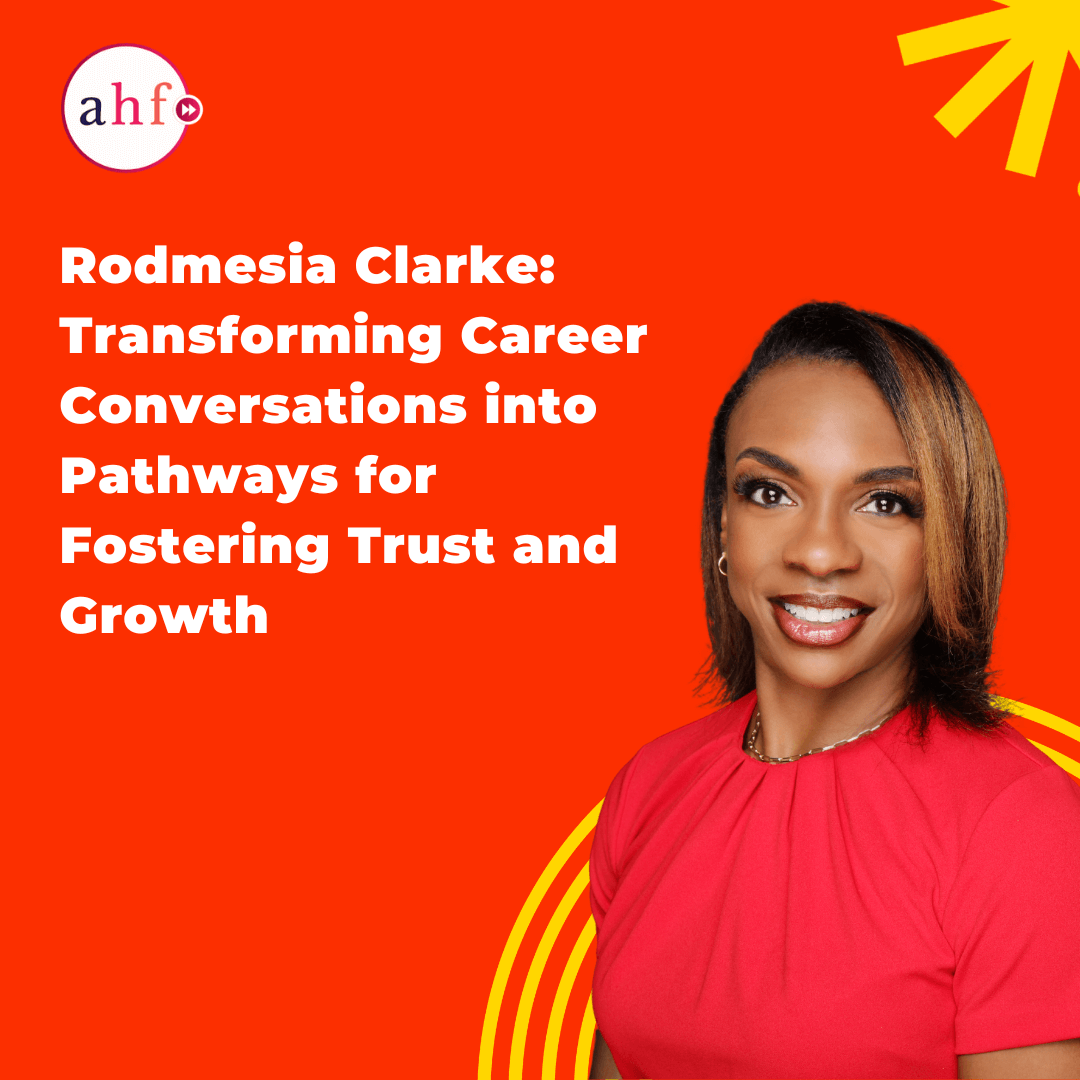
February 19, 2025

Written by Dr. Golnaz Golnaraghi, Founder and President of Accelerate Her Future
Career conversations are more than just a professional checkpoint—they are a bridge to possibility, a space where advocacy meets growth, and a chance to reimagine what’s possible for marginalized voices in the workplace. These conversations hold particular significance for Indigenous, Black, and racialized women, who often navigate spaces where representation is sparse and traditional pathways may not align with their aspirations.
At the Accelerate Her Future Virtual Summit 2024: Flourish, Rodmesia Clarke, Director of Asset Management and Governance at Enbridge Gas and a trailblazer in engineering and leadership, brought these themes to life with her wealth of experience and thoughtful insights.
As a panelist in the discussion titled, “From Career Conversations to Career Growth: A Human-Centered Approach That Propels Indigenous, Black, and Racialized Women in the Workplace,” Rodmesia illuminated how intentional dialogue can transform careers and foster career growth.
For many Indigenous, Black, and racialized women, career conversations often open doors to possibilities that might otherwise seem out of reach.
In male-dominated spaces, where representation is scarce and traditional career paths can be exclusionary, career conversations provide a platform to visualize opportunities and chart unconventional paths.
“Sometimes there’s a lack of representation or we’re in male-dominated fields, and it’s hard because there isn’t someone we can see or feel like we can be,” she shared. “These conversations not only reveal new pathways but also affirm that diverse career trajectories are valid and achievable.”
Trust emerged as a recurring theme in Rodmesia’s insights, highlighting its central role in meaningful career conversations. She emphasized that managers need to create safe spaces for authenticity and openness, investing in relationships well before formal career discussions take place.
“When I’ve developed that relationship with folks,” she explained, “people open up a little bit more and begin to dig deep in sharing, which then helps me better understand their career aspirations and goals so I can more effectively support them.”
This approach—prioritizing relationship-building and understanding—enables leaders to support their team members’ unique aspirations, even when those aspirations fall outside traditional organizational molds.
Rodmesia acknowledged that not all managers are equipped or willing to engage deeply in career development. She encouraged participants to look beyond their immediate supervisors and cultivate relationships across the organization.
“If you find yourself in this situation, look across the organization for people with whom you can have a connection and start there,” she advised. “This proactive approach to networking ensures that individuals have access to mentors, sponsors, and advocates who can champion their growth.”
Rodmesia’s reflections also offered actionable strategies for leaders seeking to create the conditions for Indigenous, Black, and racialized women to thrive:
Rodmesia’s insights were a call to action for organizations and leaders alike to reimagine career conversations as transformative tools for fostering trust and growth. By fostering trust, advocating for diverse pathways, and prioritizing human-centered leadership, we can create workplaces where Indigenous, Black, and racialized women not only envision the art of the possible but achieve it.